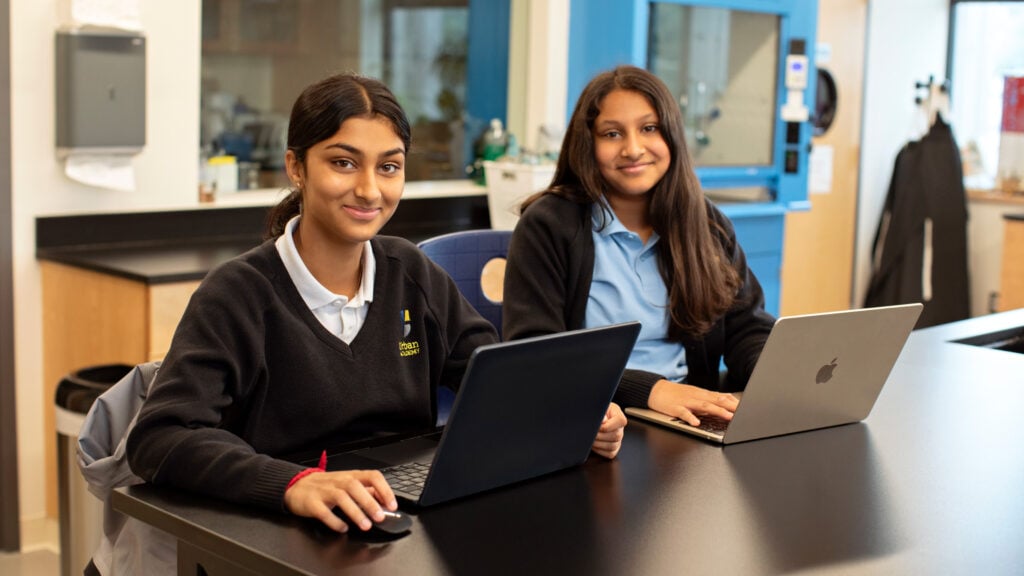A question often posed to students in Grades 10–12 is, “What are you doing after graduation?” While some students are passionate about their post-secondary goals, others aren’t quite sure yet. However, one thing is certain: Urban Academy students have been exploring their options for years, considering schools, weighing the possibilities, and sometimes even pondering how far they may venture from the family home and neighbourhood they know best.
As the 2024/25 academic year unfolds, UA students continue to strategically plan their paths toward post-secondary education. Whether aiming high for stretch schools or ensuring solid fallback options, students are encouraged to apply to at least three post-secondary institutions: a stretch school, a competitive school, and a safe option. However, many UA students apply to even more, a testament to their ambition and motivation to reach their goals. For those considering international schools, planning starts as early as Grade 9 or 10 to accommodate the additional requirements these institutions may have. Early planning is critical, particularly for more complex international applications.
In the spring of Grade 10, UA’s Academic Advisor, Mr. Gow, begins meeting with students and their parents to map out course selections for the final two years of high school and discuss post-secondary strategies. These early conversations ensure families are informed and students are on track with the prerequisites needed for their chosen paths. Students in Grades 10 and 11 receive course selection options in January and February, while Grade 8 and 9 students receive theirs in March, providing ample time to thoughtfully consider each academic step.
Academic advising at UA goes beyond course selection, with Mr. Gow providing guidance on application timelines, open houses, and scholarship opportunities. He guides students through the research and application process, which can vary greatly depending on the country or region students are exploring, whether it’s applying to schools across provinces or internationally in the US or Europe. Early applications, often completed by the fall of Grade 12, are common for students aiming for early acceptances, while others may opt for later deadlines that extend into winter or spring.
Successful post-secondary planning begins well before Grade 12. Families and students need to be aware of key factors that could affect future applications. For example, many Canadian universities require a second language up to Grade 11, which must be completed as a full course, not just challenged through an exam. Completing 30 hours of work or volunteer experience is another essential requirement for graduation. It’s also important for students to check whether their target post-secondary institutions recognize the specific AP courses they plan to take.
UA also provides valuable opportunities for students to learn about potential careers by inviting expert parents and professionals into the school to share their real-world experiences. These talks often inspire students and shape their understanding of various career paths. Additionally, the Grade 12 capstone project allows students to take a deep dive into the career area that most interests them, offering hands-on experience and deeper insight into their future fields.
A growing trend of note that is impacting all university applicants is the increasing competitiveness of post-secondary applications, particularly in specialized programs such as STEM, which continue to rise in popularity. This means that, alongside academic performance, students must present a well-rounded profile that includes extracurricular involvement, leadership experience, and volunteer work.
Through careful planning, strategic application processes, intentional guidance, and by starting early, students are equipped to face the challenges and opportunities that lie ahead in their post-secondary journeys and beyond. So next time you would like to ask a student “What are your plans for post-secondary?” a more reflective question to pose would be “What are all the things that are helping guide and prepare you for your post-secondary plans?” I believe that that question will provide you with a far more insightful answer!
